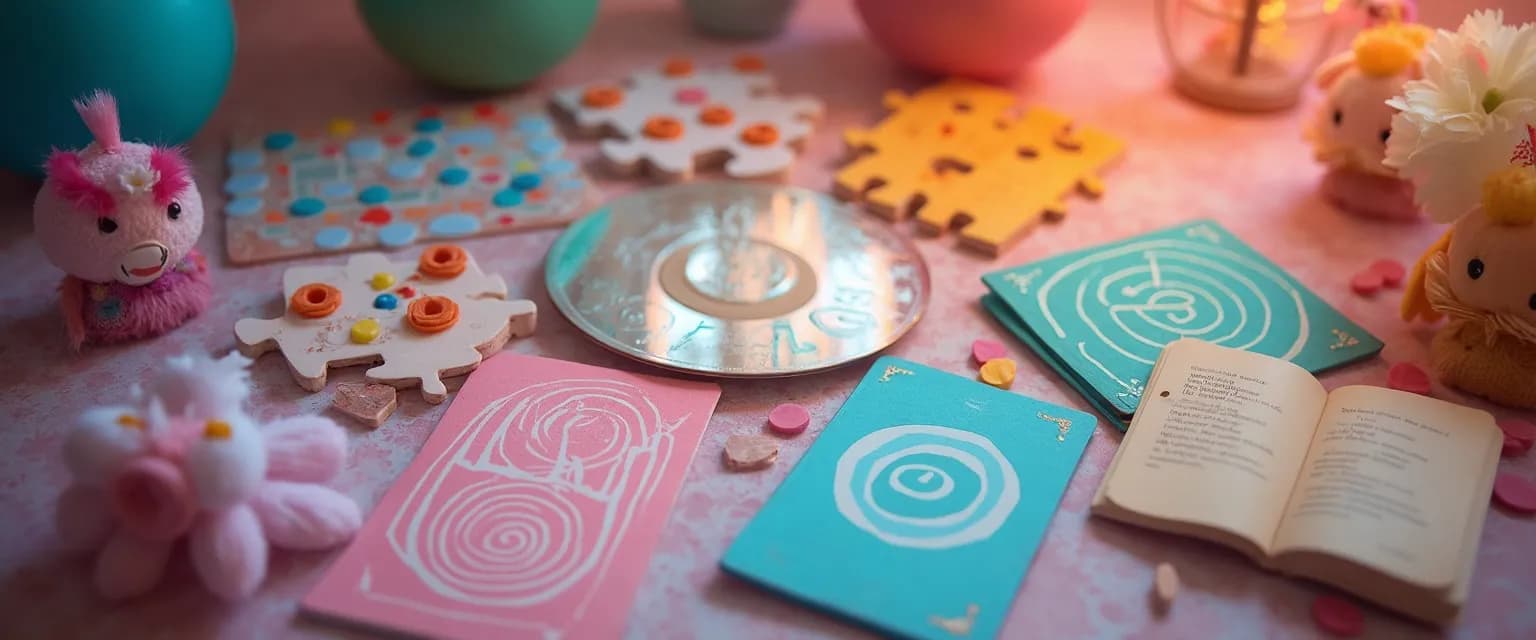Playful Self-Discovery: 5 Games That Boost Self Exploration and Self Awareness
Ever noticed how traditional self-reflection feels like homework? Those lengthy journaling sessions and intense meditation practices might work for some, but for many of us, they trigger the same resistance as a tax form. The good news? Self exploration and self awareness doesn't have to feel like work. By approaching personal discovery through play, we can bypass our analytical minds and access deeper insights about ourselves—often with surprising results.
The science behind playful self-awareness techniques is fascinating. When we engage in games, our defensive barriers naturally lower, allowing for more authentic discoveries. It's like sneaking vegetables into a delicious smoothie—you get all the benefits without the resistance.
Ready to discover aspects of yourself you might never access through traditional methods? These five unconventional games are designed to make self exploration and self awareness feel less like a chore and more like the engaging adventure it should be. Each activity reveals different layers of your personality, values, and emotional patterns—all while keeping things light and enjoyable.
5 Engaging Games for Enhanced Self Exploration and Self Awareness
Game 1: The Alternative Universe You
Imagine five parallel universes where you made completely different life choices. In each one, describe what your daily life looks like. What's surprising about this exercise is how quickly it reveals your core values and priorities. The elements that remain consistent across all versions of your life highlight what truly matters to you, while the variations show where you might have unexplored interests.
For example, if every version of you prioritizes creative expression but in different forms, you've just discovered a fundamental need that deserves attention in your current life.
Game 2: Emotion Color Wheel
Grab some colored pencils or markers and draw a wheel. As you recall different emotional experiences from your week, assign each emotion a color that intuitively feels right. This visual representation of emotions often reveals patterns you might miss through verbal processing alone. Many people discover they have a much wider emotional palette than they realized, or that certain emotions dominate their experience.
Game 3: The Five Whys of Joy
Think of a recent moment when you felt genuinely happy. Ask yourself why it made you happy, then take that answer and ask "why" again. Continue this process five times to trace your joy to its root source. This game often reveals surprising connections between seemingly unrelated pleasures and your deepest values, providing a roadmap to more fulfilling experiences.
Game 4: Value Cards Shuffle
Write 20 values that sound important to you on separate cards (honesty, adventure, security, etc.). Then play a game of elimination: If you could only keep 15, which would you eliminate? Continue narrowing down to 10, then 5, then your top 3. The decision-making process itself reveals more about your priorities than the final selection. Pay attention to which choices were difficult and which were surprisingly easy.
Game 5: The Inner Committee
Imagine the different voices in your head as committee members with distinct personalities. Give each a name, role, and even a physical appearance. When facing a decision, let each committee member speak their perspective. This personality exploration technique helps you recognize your different internal drives without judging them, leading to more integrated decision-making.
Integrating Self Exploration and Self Awareness into Daily Life
The beauty of these games lies in their flexibility. Unlike structured self-improvement programs that demand consistent time commitments, these playful approaches to self exploration and self awareness can be incorporated whenever you have a spare moment or feel curious.
Try playing one game a week during your commute, lunch break, or before bed. The key is approaching them with genuine curiosity rather than seeking specific outcomes. Research shows that this low-pressure approach actually yields more authentic insights than goal-oriented self-analysis.
You can also create your own variations. Once you understand the core principle—using play to bypass your analytical mind—you'll start seeing opportunities for self-discovery everywhere. A simple question like "If my mood today were weather, what would it be?" can unlock surprising insights.
The lasting benefit of these games extends beyond the immediate discoveries. Over time, they cultivate a habit of playful self-awareness that makes you more attuned to your authentic needs and responses in real-time. This ongoing self exploration and self awareness practice becomes less something you do and more a natural way of moving through the world—curious, open, and constantly discovering new dimensions of yourself.




